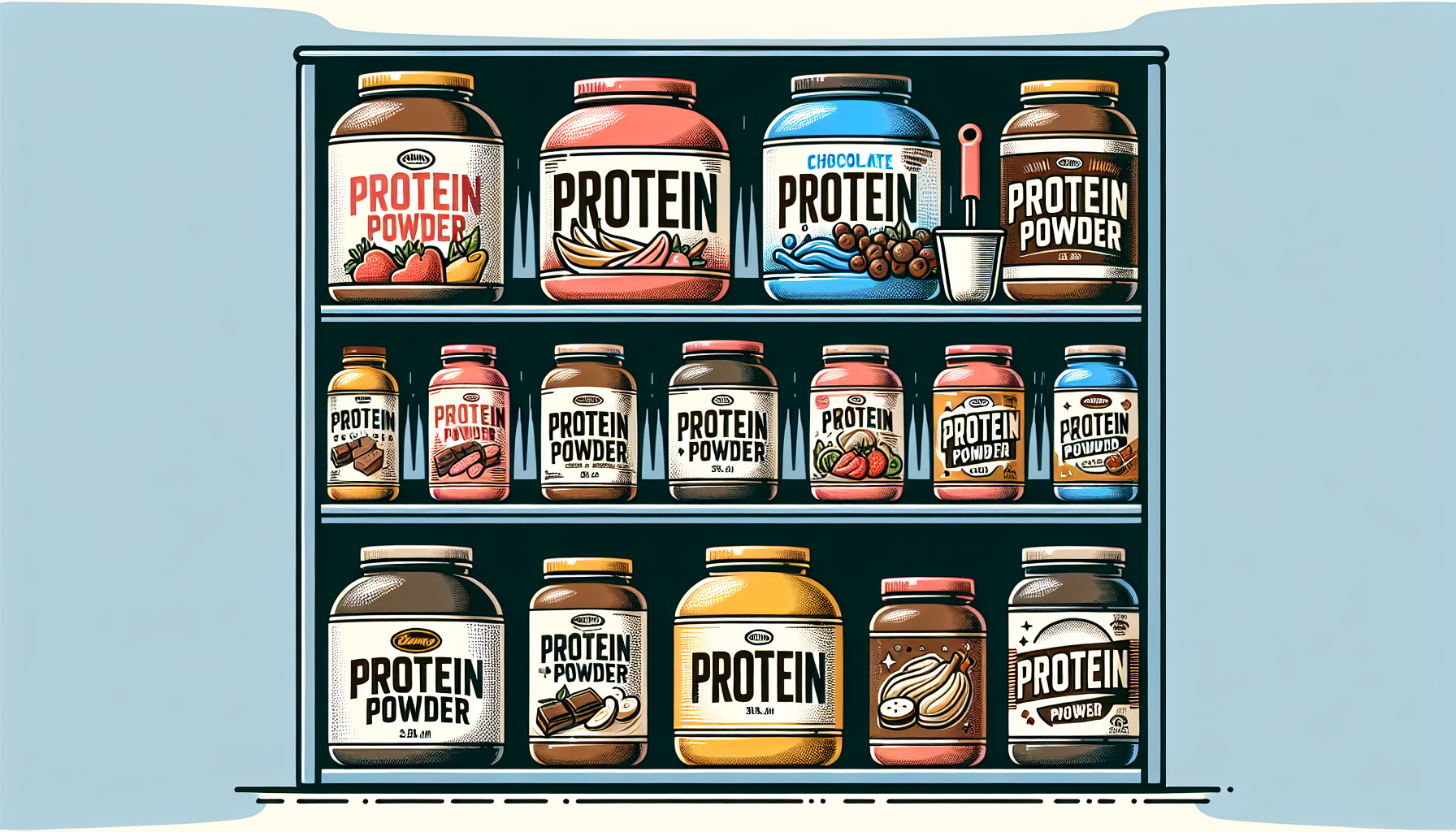Protein is a vital macronutrient essential for building muscle, repairing tissue, and producing enzymes and hormones. With the rising interest in fitness and health, protein powders have become a popular dietary supplement. But with so many options on the market, it can be challenging to choose the right one for your needs. This comprehensive guide aims to help you navigate the plethora of choices so you can select a protein powder that complements your health and fitness goals.
Understanding Protein Powder
Protein powders come from various sources, including dairy, plants, and eggs. The most common types are whey, casein, soy, pea, and rice protein. Each type has its unique properties, benefits, and potential drawbacks.
Whey Protein
Whey protein is derived from milk and is a byproduct of the cheese-making process. It’s a complete protein, meaning it contains all nine essential amino acids. It’s also rich in branched-chain amino acids (BCAAs), particularly leucine, which is crucial for muscle growth and recovery. Whey protein is known for its fast digestion and absorption, making it a favorite among athletes for post-workout recovery.
Casein Protein
Also sourced from milk, casein protein digests more slowly than whey, providing a gradual release of amino acids. This makes it an excellent option for sustained protein intake, such as before bed to aid muscle recovery overnight.
Plant-Based Proteins
Plant-based proteins like soy, pea, and rice are ideal for vegetarians, vegans, and those with dairy allergies or lactose intolerance. Soy protein is a complete protein, while pea and rice proteins are often combined to ensure all essential amino acids are present.
Factors to Consider When Choosing Protein Powder
Dietary Restrictions
If you have dietary restrictions such as lactose intolerance, a dairy allergy, or you’re following a vegan diet, plant-based proteins will be the most suitable. For those avoiding soy due to allergies or personal preference, pea, rice, or hemp protein are alternative options.
Fitness Goals
Your fitness goals play a significant role in your choice. If building muscle is your priority, a protein powder with a high BCAA content, like whey, may be optimal. For endurance athletes, a combination of different protein sources might provide sustained energy and aid in recovery.
Quality and Purity
Look for protein powders that have undergone third-party testing and have certifications for quality and purity. This ensures you’re getting a product free from contaminants and that it contains what it claims on the label.
Taste and Mixability
The taste and texture of protein powder can be a dealbreaker for many. Sample different flavors and brands to see which one you prefer. Some powders blend more easily than others, which is important if you’ll be mixing it with just water or milk.
Added Ingredients
Some protein powders come with added sugars, artificial flavors, and fillers. These may not align with your dietary goals, especially if you’re watching your calorie intake or trying to avoid artificial additives. Read the ingredient list carefully to choose a powder that aligns with your health goals.
Integrating Protein Powder into Your Diet
Protein powder can be a versatile addition to your diet. It’s not just for shakes; you can mix it into oatmeal, bake it into treats, or blend it into smoothies. For those looking to improve their overall digestive health, selecting a protein powder with added digestive enzymes can help ease digestion and absorption.
The Role of Protein in Fitness
Protein is crucial for anyone engaged in regular exercise. It helps with muscle repair and growth, and it’s essential for those looking to increase muscle mass or improve recovery. Integrating protein powder into a fitness routine can help you meet your increased protein needs without overconsuming other macronutrients.
Protein and Weight Management
Protein powders can also play a role in weight management. High-protein diets have been shown to promote satiety, which can help reduce overall calorie intake. For those looking to lose weight, a protein shake can serve as a low-calorie meal replacement that still provides essential nutrients.
Special Considerations
Certain populations, such as older adults or postnatal women, may have specific protein needs. Older adults can benefit from protein powders to help maintain muscle mass, which tends to decrease with age. For postnatal women, protein can aid in recovery and provide the necessary nutrients for breastfeeding. Explore resources such as Creating an Effective Postnatal Fitness Routine for more tailored advice.
External Resources for Further Reading
To deepen your understanding of how protein powders can fit into various diets and lifestyles, consider exploring these resources:
- Examine.com provides detailed, evidence-based information on different types of protein supplements.
- The International Society of Sports Nutrition offers position stands and papers on protein and exercise.
- NutritionData.Self.com allows you to analyze the nutritional content and amino acid profiles of different protein powders.
- VeganHealth.org specifically discusses protein needs and sources for those following a vegan diet.
Conclusion
Choosing the right protein powder can be a simple process once you know what to look for. Consider your dietary needs, fitness goals, and any additional ingredients that may support or hinder your health objectives. Always opt for high-quality protein powders that provide the nutritional benefits you need to complement your diet and support your lifestyle.
Remember, while protein powders are a convenient way to increase your protein intake, they should not replace whole food sources of protein. A balanced diet rich in a variety of protein sources is the best approach to ensure you’re getting all the necessary nutrients for optimal health.
For more detailed explorations of health and fitness topics, visit Avix Health for articles covering everything from how to set realistic fitness goals to the impact of diet on workout recovery.



